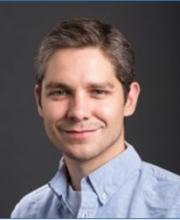The CSAP Workshop on Quantitative Research Methods presents:
Joshua Lindsey Warren, Biostatistics, Yale School of Public Health: “A Spatially Varying Coefficient Model with Partially Unknown Proximity Matrix for the Detection of Glaucoma Progression Using Visual Field Data”.
Glaucoma is a leading cause of irreversible blindness worldwide. Once a diagnosis is made, careful monitoring of the disease is required to prevent vision loss. However, determining if the disease is progressing remains the most difficult task in the clinical setting. We introduce new spatial methodology in the Bayesian setting in order to properly model the progression status of a patient, as determined by expert clinicians, as a function of changes in sensitivities at each visual field (VF) location jointly. Past modeling attempts include the analysis of global VF measures over time or the separate analyses of sensitivities at individual VF locations over time. The first set of methods ignores valuable spatial information while the second set is inefficient and fails to account for spatial similarities in vision loss across the VF. Our spatial probit model jointly incorporates all VF changes in a single framework while accounting for structural similarities between neighboring VF regions. Results indicate that our method provides improved model fit when compared with previously developed methods. The model is also shown to provide improved predictions of progression status in a validation dataset. This model may be clinically useful for detecting the glaucoma progression status of an individual.
Joshua Lindsey Warren is an assistant professor in the Department of Biostatistics at the Yale School of Public Health. He received his Ph.D. in statistics from North Carolina State University in 2011. Dr. Warren’s research focuses on statistical methods in public health with an emphasis on environmental health problems. Much of his work involves introducing spatial and spatiotemporal models in the Bayesian setting to learn more about associations between environmental exposures, such as air pollution, and various health outcomes including preterm birth, low birth weight, and congenital anomalies. He also has interest in developing and applying spatiotemporal models in collaborative settings such as epidemiology, geography, nutrition, and glaucoma research. His theoretical and methodological interests include multiple topics in spatial/spatiotemporal modeling and Bayesian nonparameterics.
